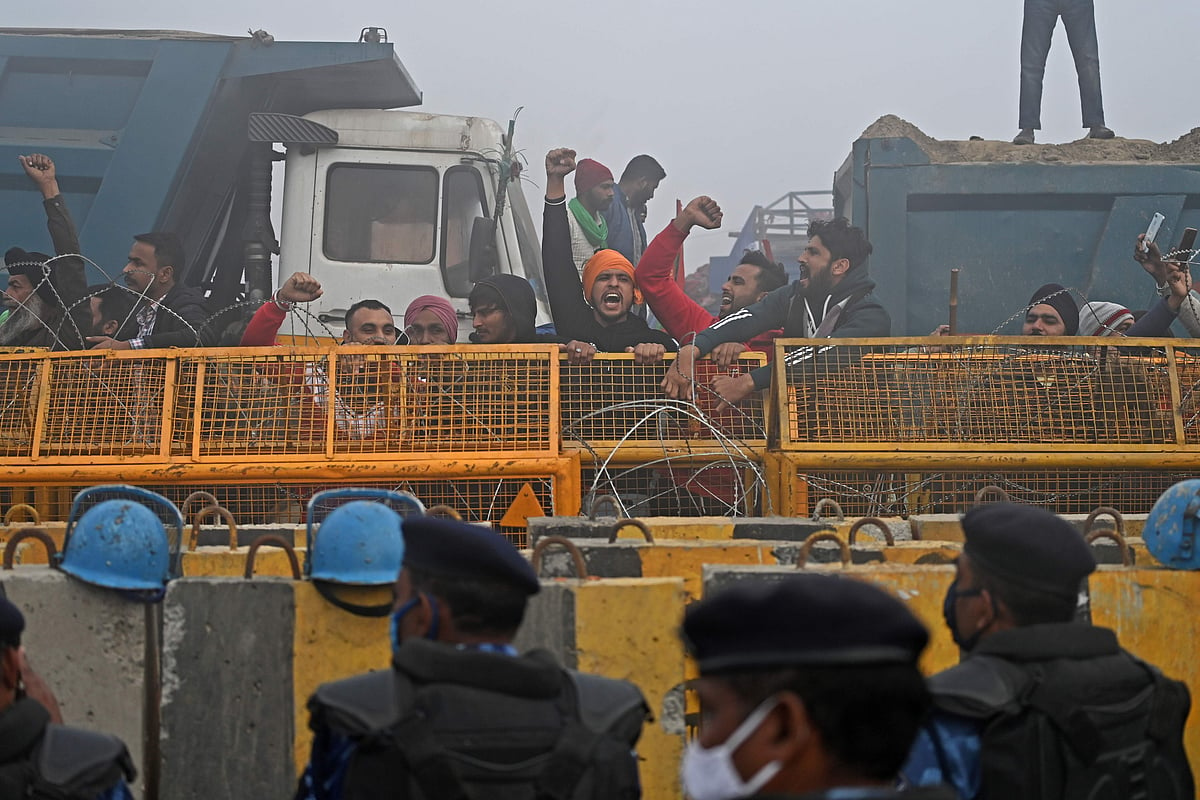Farmers protesting against the Centre's agricultural sector laws have called a "Bharat Bandh" today after several rounds of talks with the government over the new farm laws remained inconclusive.
Farmer unions on Friday decided to intensify their agitation against the farm laws calling for 'Bharat Bandh' today stating that they were not satisfied with amendments to the agricultural legislations being proposed by the government.
Shops and commercial establishments were closed, transport affected and traffic disrupted as protesters squatted on roads and train tracks in several parts of the country on Tuesday in response to a 'Bharat Bandh' called by farmers demanding a repeal of the new agri laws.
Emergency services were exempted and banks, too, continued operations as the pan-India shutdown, backed by most opposition parties and many trade unions, came into effect with the maximum impact expected in states such as Punjab, Haryana, and Delhi, the epicenter of the snowballing protests.
Thousands of farmers have been protesting on different borders of the national capital since November 26 against the three newly enacted farm laws. Leaders of farmer groups have held several rounds of talks with the government but all of them remained inconclusive so far. After the fifth round of talks, Union Agriculture Minister Narendra Singh Tomar has called another meeting on December 9.
So what are the demands of farmers?
1. The first and foremost demand of the protesting farmers’ organisations is the repeal of three new agricultural laws. The three new agricultural laws include the Farmers Produce Trade and Commerce (Promotion and Simplification) Act 2020, the Farmers (Empowerment and Protection) Price Assurance and Agreement on Agricultural Services Act 2020, and Essential Commodities (Amendment) Act 2020. Farmers’ organisations say that these laws will benefit the corporate, but not the farmers. However, the government claims that farmers will benefit from these three laws and the agriculture sector will grow.
2. The second demand of farmers is the guarantee of MSP to ensure procurement of crops at minimum support price (MSP). Farmers’ organisations want a guarantee of MSP from the central government. However, the government has assured to continue procurement on MSP and is also presenting an example of the record procurement of other crops, including wheat and rice during the tenure of the current government.
3. The third demand of farmers is the withdrawal of the Electricity (Amendment) Bill, as they feel that they won’t get free electricity due to this.
4. The farmers’ fourth demand is to end the fine and jail sentence for stubble burning.
5. In addition, they also are demanding MSP as recommended by the Swaminathan Commission. The Swaminathan Commission Report states that the government should raise the MSP to at least 50% more than the weighted average cost of production. It is also known as the C2+ 50% formula.
6. Slash diesel price for agricultural use by 50%.
7. They are also demanding to get a written assurance in the form of a Bill that minimum support price (MSP) and conventional food grain procurement system by the Centre will continue.











